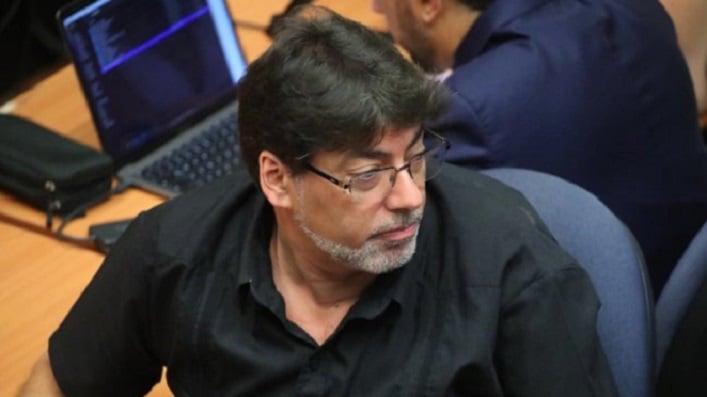Lawfare and Judicial Persecution Against Jadue Denounced

A collective of prominent figures from academia, culture, and human rights has issued a forceful ethical appeal denouncing what they describe as a campaign of lawfare against Mayor Daniel Jadue. They argue that the weaponization of the justice system for political ends does more than target one individual; it seeks to shut down transformative projects, gravely undermining pluralism and Chile’s democracy. In this context, they contend, silence from the intellectual community amounts to complicity that paves the way for future persecutions.
The signatories—among them national award recipients and university rectors—underscored the gravity of Jadue being deprived of liberty for fifteen months in a process marked, in their view, by violations of due process and a “suspiciously election-timed” cadence of rulings. They issued a respectful yet firm call for their peers to speak out, warning that “today they come for Daniel Jadue; tomorrow they will come for others,” noting that his parliamentary candidacy was invalidated by the Tricel in a split decision.
Below is the full statement:
An Ethical Call to the Academic and Cultural Community
Today in Chile we are witnessing a matter of the utmost gravity: judicial, political, and media persecution against Daniel Jadue. This is not only about one person or a local government; what is at stake is the quality of our democracy. Lawfare—the instrumentalization of the justice system to exclude adversaries—erodes the right to participation, undermines the safeguards of due process, and threatens the pluralism that sustains our society.
In the face of this, silence is deafening. Omission is a form of complicity. When one is attacked and we say nothing, we open the door for others to be targeted tomorrow. The aim is not merely to block a single name; it is to shut down the possibility of thinking, proposing, and implementing deep, transformative changes for the benefit of our people.
This is not about personal or political sympathies. It is an assault on the very possibility of dissent—of imagining alternatives and exercising citizenship. To remain silent now is to accept that democracy be reduced to an empty ritual. All the more so given that Servel accepted his run for deputy, the Metropolitan Electoral Tribunal ratified it, and ultimately Tricel struck it down in a split ruling (3–2) at the request of a right-wing party, active throughout the lawfare process and directly interested in removing a very strong electoral contender.
We call, respectfully but firmly, on those who cultivate words, thought, and art: your voice is necessary. Today they come for Daniel Jadue; tomorrow they will come for others. And when there is no one left who can speak, it will be too late—we know that story all too well.
We raise our voices to denounce this injustice and pettiness. We stand against this abuse and the attempt to cancel a model of local governance that put improvements to people’s well-being at the center of development. We also denounce that Daniel Jadue has already spent fifteen months deprived of liberty in a process marked by repeated violations of due process and by the suspicious electoral timing of the court rulings that affect him.
The proposals for the society we want to build are a collective challenge. They demand greater humanity and must be grounded in truth and justice so that we can face the future with dignity, respect, and hope for our country.
Signatories:
- Miguel Lawner: Architect, academic, National Architecture Award.
- Jorge Coulon: National Music Arts Award; musician and co-founder of Inti Illimani.
- María Emilia Tijoux: PhD in Sociology, University of Paris; academic at the University of Chile.
- Isabel Gómez: Writer, poet, librarian; President of the Chilean Writers’ Society.
- Kemy Oyarzun: Academic; co-founder of the Center for Gender Studies; President of the Pablo Neruda Foundation; writer.
- Atilio Borón: Sociologist, political scientist, essayist. (Argentina)
- Juan Carlos Monedero: Political scientist, professor, politician, writer, and TV host. (Spain)
- Flavio Salazar: Biologist, former Minister of Science and Technology, academic.
- Carlos Margotta: Lawyer; President of the Association of Jurists for Democracy; Director of International Relations, Chilean Human Rights Commission.
- Alvaro Ramis: PhD in Ethics and Democracy, University of Valencia; Rector, Universidad Academia de Humanismo Cristiano.
- Jorge Magasish: PhD in History, Art, and Archaeology, University of Brussels; writer.
- Alonso Salinas García: Attorney, Pontifical Catholic University of Chile; former president of the Chilean Human Rights Commission; writer.
- Hassan Akram: Economist; PhD in Social and Political Sciences, University of Cambridge; Director of the Chile campus of U.S. university Wake Forest.









